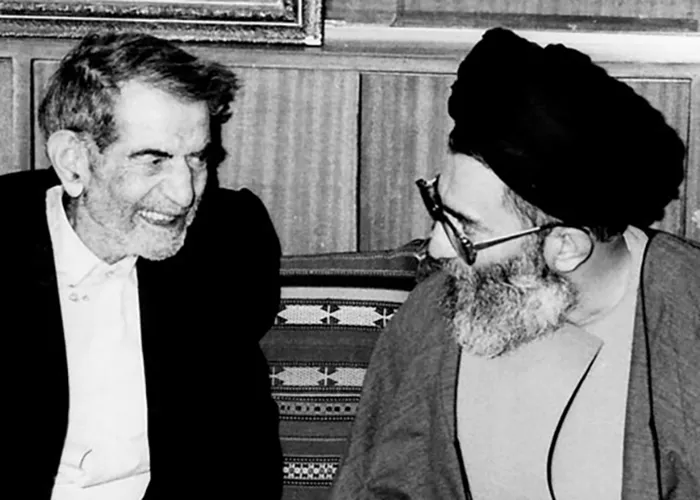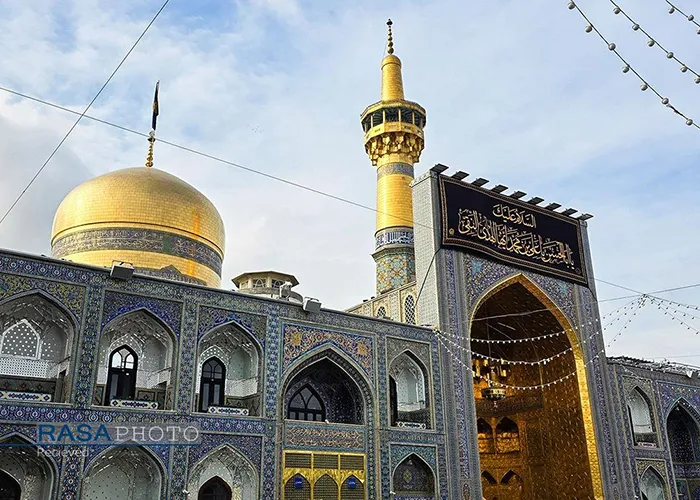Events of the Week– Friday Bulletin Issue12
11th September 2001
Anniversary of the Attack on the Twin Towers in the U.S.
On this day in 2001, a terrorist attack on the World Trade Centre in New York caused the collapse of the Twin Towers, resulting in the deaths of more than 2,976 people and injuries to over 6,300. On this day, the Pentagon building was also attacked in a terrorist assault. The terrorist organization Al-Qaeda claimed responsibility for carrying out these attacks.
After this incident, which is recorded in history as the “September 11 attacks,” the U.S. government began a process that led to the prolonged occupations of Afghanistan and Iraq.
12th September, Corresponding to 8 Rabi’ al-Awwal
Martyrdom of Imam Hasan al-Askari (as)
The 8th of Rabi’ al-Awwal in the year 260 AH marks the martyrdom of Imam Hasan al-Askari (as), the eleventh Imam of the Shia. Due to his short and turbulent period of leadership, along with the severe restrictions imposed on him by the Abbasid government, Imam Hasan al-Askari (as) is considered a significant figure in Shia history. He was kept under surveillance by the Abbasid caliphs in the city of Samarra and eventually was martyred at the age of 28.
The day of his martyrdom is a time for mourning and expressing devotion to this great Imam. On this day, ceremonies of grief and mourning are held in mosques and Husayniyyahs, where his life story and resistance against the injustices and political pressures of the time are discussed. This occasion also serves as an opportunity to reflect on Imam Hasan al-Askari’s (as) teachings and moral guidance, which emphasized patience, perseverance, and safeguarding religion in difficult times.
In various parts of the world, especially in regions with a significant Shia population, this day is remembered as a time to honour Imam Hasan al-Askari’s (as) sacrifices for the pure Muhammadan Islam. This commemoration also underscores the importance of his legacy in maintaining the continuity of Imamate and its connection to the emergence of Imam Mahdi (May Allah hasten his reappearance).
13th September, Corresponding to 9 Rabi’ al-Awwal
Beginning of Imamate of Imam al-Mahdi (May Allah hasten his reappearance) 260/ 874
Imam Mehdi (aj) is the twelfth Imam in Twelver Shi’ism, born in 255/869. He is the promised saviour who will bring peace and justice to the world. Imam al-Mahdi (aj) became the Imam (aj) at the age of five after his father, Imam al-Hasan al-‘Askari (as), was martyred in 260/874. Shortly after, he entered into occultation. From 260/874 to 329/941, he communicated with his followers through his Four Deputies, marking the period of Minor Occultation. His Major Occultation began in 329/941, with religious scholars guiding the Shi’a community during his absence. Shi’as honour Imam al-Mahdi (aj) as the “Imam of the time” and “Wali l-‘Asr” (guardian of the age). His life, occultation, and eventual reappearance are central to Shi’a beliefs, with many hadiths and writings dedicated to him. His birth is celebrated annually on the fifteenth of Sha’ban, a major Shi’i festival.Top of Form
Bottom of Form
14th September, Corresponding to 10 Rabi’ al-Awwal
Marriage of Hadhrat Muhammad (sa) to Hadhrat Khadija (as)
The marriage of Prophet Muhammad (as) and Hadhrat Khadija bint Khuwaylid (as) is a pivotal moment in Islamic history. Hadhrat Khadija (as), a noble and successful merchant in Mecca, was known for her integrity and earned the title “Tahira” (“the pure one”). At 25, Prophet Muhammad (as) became her agent for a trading expedition to Syria. His honesty and skill impressed her, leading her to propose marriage, which took place with the support of his uncle, Abu Talib (as).
Their marriage was marked by deep love, respect, and shared commitment to Islam. Hadhrat Khadija’s (as) financial support allowed Prophet Muhammad (as) to focus fully on his spiritual mission, freeing him to promote the faith. She played a critical role in the early development of Islam by dedicating her resources to the faith’s growth. Their union was blessed with their beloved daughter, Hadhrat Fatima Zahra (as). Hadhrat Khadija (as) remains a revered figure in Islam for her unwavering support, sacrifice, and contribution to the success and spread of the religion during its early years. Her role as a devoted wife and pillar of support is celebrated in Islamic history.
16th September, Corresponding to 12 Rabi’ al-Awwal
Birth of the Prophet Muhammad (as)According to Sunni Tradition
There is a difference of opinion among Muslims regarding the birthdate of the Prophet Muhammad (as), the founder of Islam. According to Sunni tradition, the revered Prophet was born on the 12th of Rabi’ al-Awwal in 570 CE in the city of Mecca, while Shia Muslims believe that his birth occurred on the 17th of Rabi’ al-Awwal of the same year.
Imam Khomeini, the founder of the Islamic Republic of Iran, who was always a proponent of unity among Muslims worldwide, used this occasion to create a bridge for solidarity and togetherness among all Islamic groups. He designated the period between these two dates, from the 12th to the 17th of Rabi’ al-Awwal, as “Unity Week.” Today, many Islamic countries celebrate the birth of the Holy Prophet (as) with respect and love for this initiative by the Islamic Republic of Iran, holding gatherings and special events during this week with the aim of fostering Islamic unity and cohesion, and commemorating the memory of this great divine figure.
Entrance of Prophet Muhammad (s) to Medina 1/ 622
When Muslims in Medina heard that Prophet Muhammad (as) had left Mecca, they eagerly awaited his arrival. One day, a Jewish man spotted him approaching and shouted, “O Muslims, here is your Master whom you await!” The Muslims rushed to meet him, and he continued to Quba, staying with the clan of Amr ibn Awf. Overjoyed, the community proclaimed “Allahu Akbar” (God is Greatest). The Prophet (as) stayed in Quba for three days, waiting for Imam Ali (as). During his stay, he established the Quba Mosque, the first mosque in Islam. On Friday, the Prophet (as) delivered the first Friday sermon and led prayers with one hundred men. After the prayer, he and Imam Ali (as) headed towards Medina. The Prophet (as) chose to stay where his camel halted, at the home of Abu Ayyub, a poor resident. Prophet Muhammad (as)’s arrival in Medina was celebrated as the most joyous occasion, marking a significant moment in Islamic history.Top of Form
17th September
Persian Poetry and Literature Day
On this day, the influential and prominent Iranian poet Seyyed Mohammad Hossein Shahriar passed away. In his honour, this day has been designated as Persian Poetry and Literature Day, providing an opportunity to celebrate the beauty and depth of Persian literature and its significant role in Persian-speaking cultures.
This day is also a chance to introduce Persian poetry and literature to the world, emphasizing the importance of the Persian language on the global stage.
editor's pick
news via inbox
Subscribe to the newsletter.




